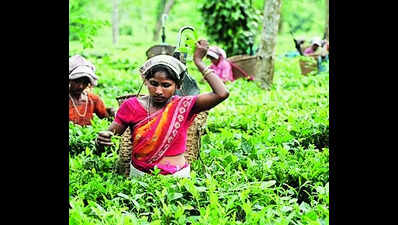- News
- City News
- guwahati News
- Forgotten tales of patriotism & sacrifices from tea gardens
Trending
This story is from August 21, 2023
Forgotten tales of patriotism & sacrifices from tea gardens

The British were lured to Assam by its tea and there are many tales of patriotism and sacrifices from the gardens that remain untold in the pages of the nation’s mainstream history.

The British had originally promised to restore the 600-year-old Ahom monarchy and return after liberating Assam from Burmese invaders in 1824, but they stayed back after they smelt tea, petroleum and coal here, former state information commissioner and author-journalist Samudra Gupta Kashyap said.
Be it the once British employee-turned-rebel tea planter and entrepreneur Maniram Dewan, one of the first to be hanged following the 1857 mutiny, or the first woman martyr of the state, Moongri aka Malati Oraon, there are many heroic tales hidden amid the tea bushes. “Tales of valour from the northeast in the country’s freedom struggle may not have been systematically documented in the mainstream history pages, but at every phase of the movement, there are stories that have contributed towards national integration,” Kashyap said.
He said his book ‘Untold Stories of the Freedom Struggle from North East India’ is an attempt to document these stories of uprisings against the British, which in Assam was best personified in the tea gardens.
Soon after the so-called “discovery” of tea in Assam, the British set up tea gardens, first through the government and then by setting up the Assam Company in 1839.
“Alongside colonial rule, Assam also saw the simultaneous emergence of what came to be termed as ‘planter raj’ with British tea planters practically running a parallel government within the gardens which in reality were their small fiefdoms with labourers treated like slaves,” Kashyap said.
Freedom of movement of tea plantation labourers was extremely limited with atrocities, physical abuse, racial hatred being rampant, he said.
Gradually, as awareness increased, the tea workers began to protest and between 1904-1921, 140 cases of rioting and unlawful assembly were reported from Assam’s gardens.
Dismissing protests by using violence was common with records of at least two persons killed by British planters. They were Christosen Munda, hanged at Phulbari tea estate in Sonitpur for ‘inciting’ labourers of Monabari and Kathoni tea estates for demanding better facilities, and Bankura Chaora who was stabbed to death by the British manager of Santak tea estate of Sivasagar in 1946 before labourers were fired upon for demanding wage increase.pti
End of Article
FOLLOW US ON SOCIAL MEDIA








